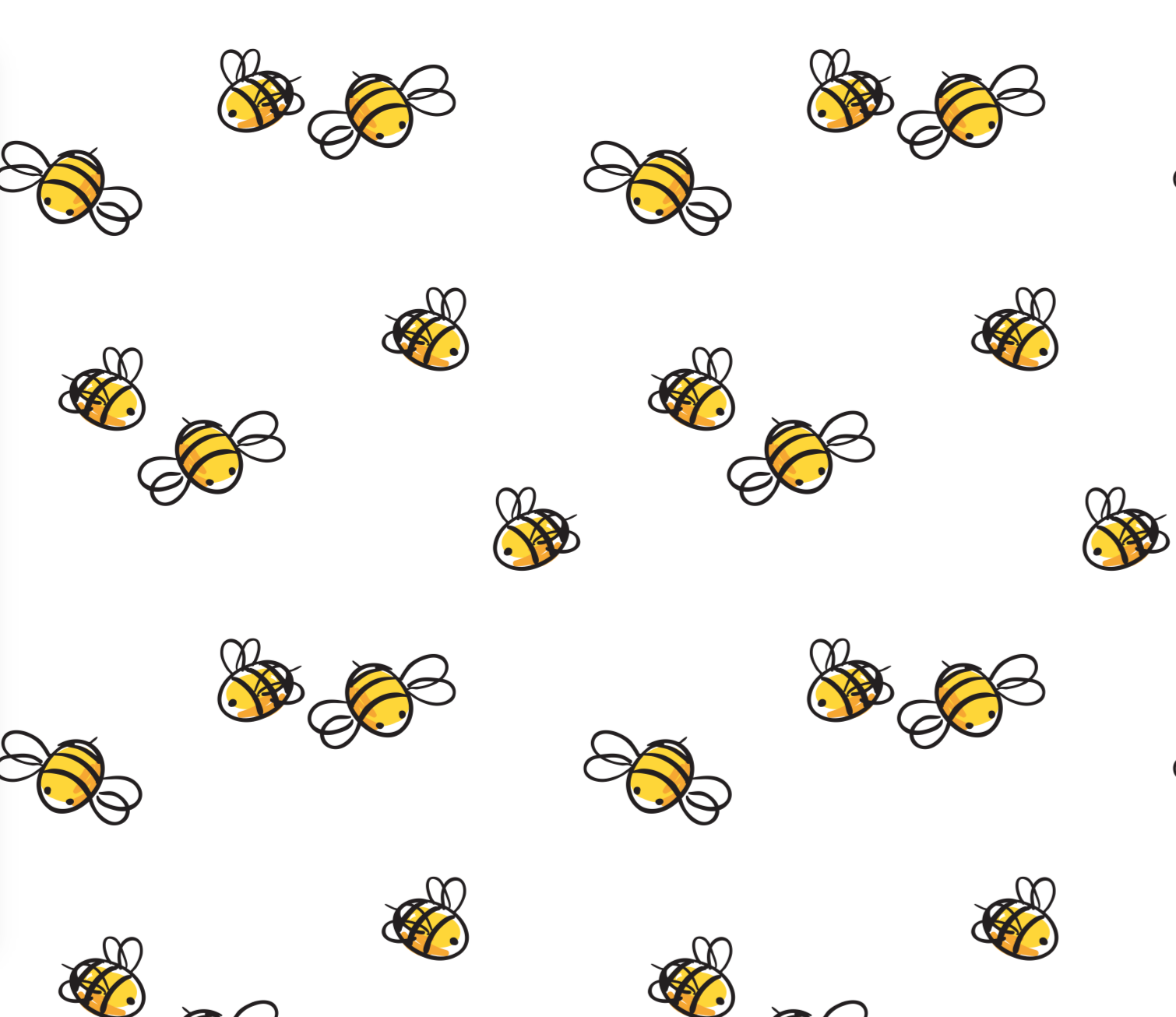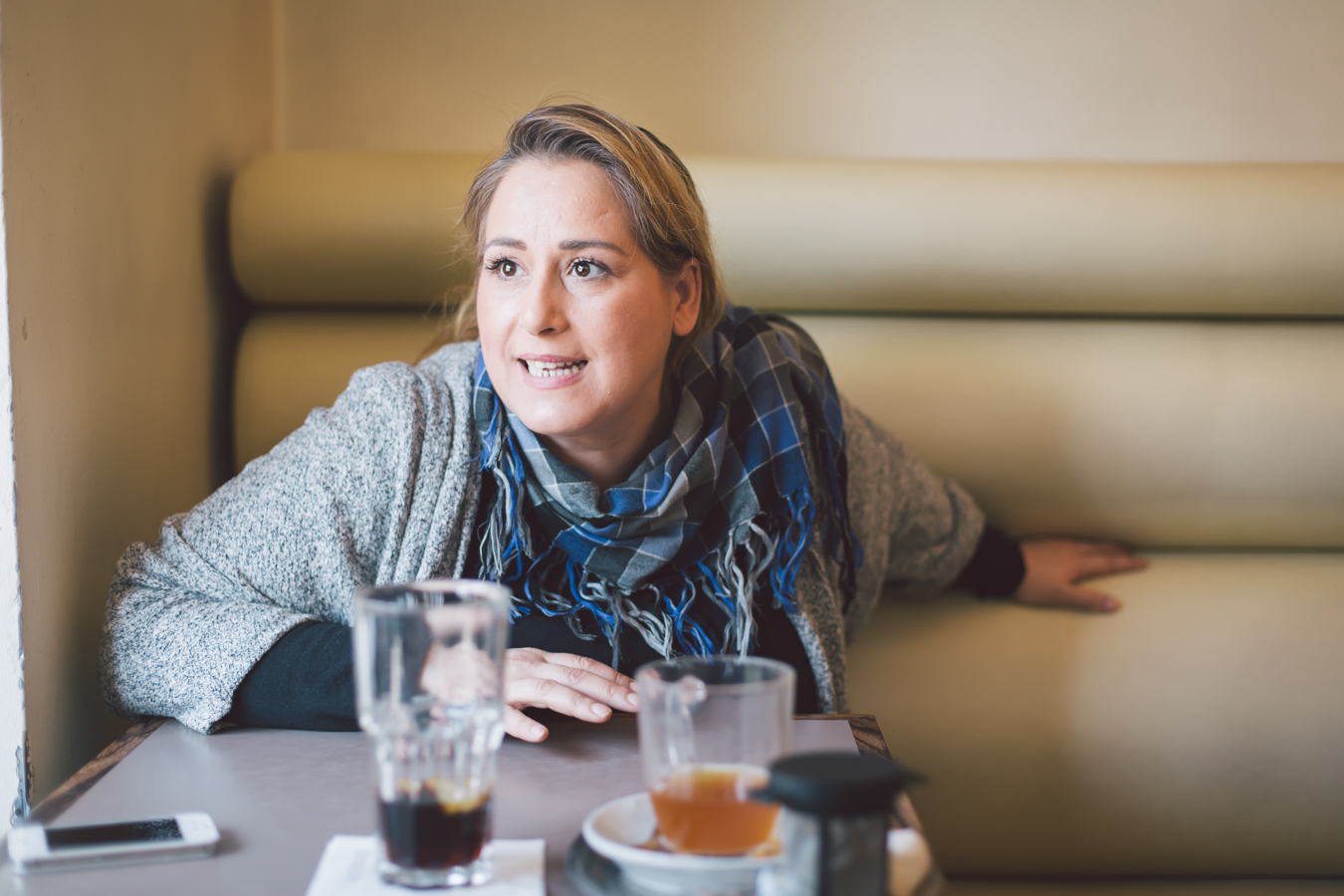That’s the dilemma with tattoos: On the one hand, they originate from the shadows of convict life, and are therefore not quite free of prejudice, on the other hand, some are increasingly concerned that the tattoo is degenerating into a fashion accessory. Consequently, instead of setting oneself apart from the crowd, one becomes part of a new mainstream. Yet, between fashion trend and convict image, the fact remains that people have always had a certain fascination with tattoos. It is this fascination that also seized the Cologne tattoo artist Nurcan, better known as Janna Oz. She has been a tattoo artist since 2006. In order to get to know her and her occupation better, we visited her at Studio Santa Sangre in Cologne’s Südstadt.
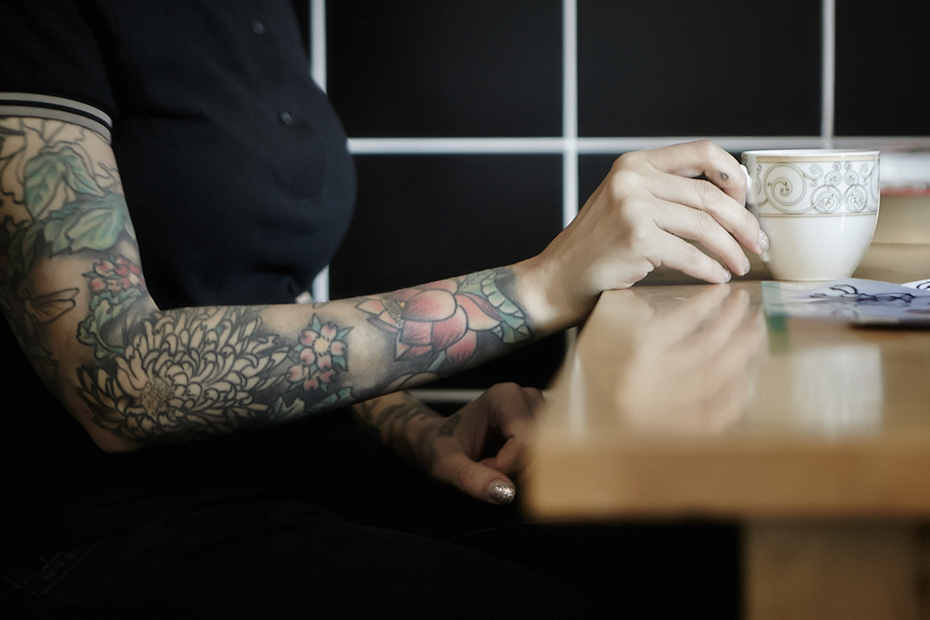
Nurcan, what does tattooing mean to you?
For me, tattoos mean love, freedom and passion. They are a way of approaching life for me. A tattoo is body jewellery that lasts forever. It can set you apart from others, make an affiliation to something recognisable and tell your story. Tattooing is my life. It is my passion. I can’t imagine doing anything else. And I never will.
But developing myself more artistically, that’s a possibility. It sounds kind of funny, but I enjoy painting decorative paintings. I love to adorn my furniture with them. I enjoy doing everything that has to do with painting and art. Most recently I painted my boyfriend’s motorcycle helmet. I have to let it all out of me, on people, furniture, leather or motorcycle helmets. It’s fun for me, it’s who I am.
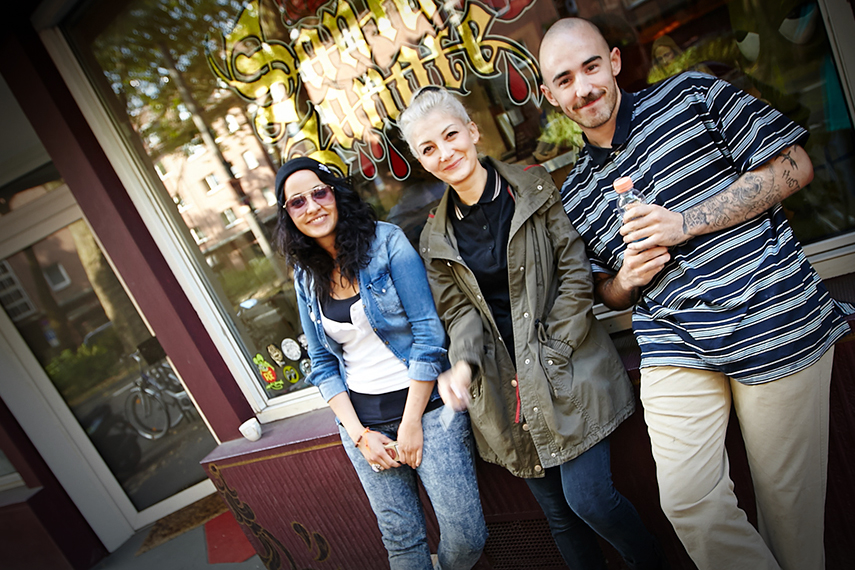
When, how and what was your first tattoo?
I have always been interested in tattoos. I was 16 when I finally got my first own tattoo: A bird of paradise on my shoulder blade.
I saved up 360 Marks of my allowance for it, went to the tattoo artist and selected something from his works. It was different back then, no one asked you for a consent form from your parents. He had different motifs in various price classes on the wall and so I picked out what I had enough money for.
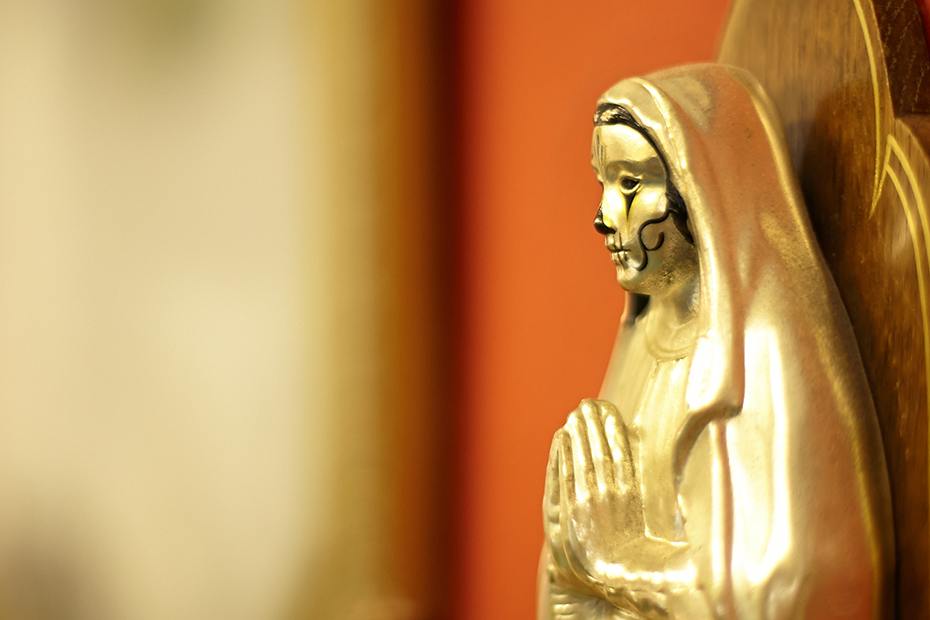
Did you always know that you wanted to become a tattoo artist?
I now know that I never want to do anything else again. However, it was a long road before I began working as a tattoo artist.
First I completed training to become a nurse, but quickly realised that I did not want to do it for the rest of my life. After that, I began an apprenticeship to become an optician. I was able to do my own thing creatively during the apprenticeship and built the craziest glasses. However, when the apprenticeship was over, so was the fun, because after that you are pretty much responsible for sales. Oh, and I had a rock ‘n’ roll bar, too. But gastronomy wasn’t my thing, either. It was a great time that I definitely wouldn’t want to not have experienced. But I always felt that a creative job was missing. That’s why it’s out of the question for me to go back into gastronomy or start working as an optician again.
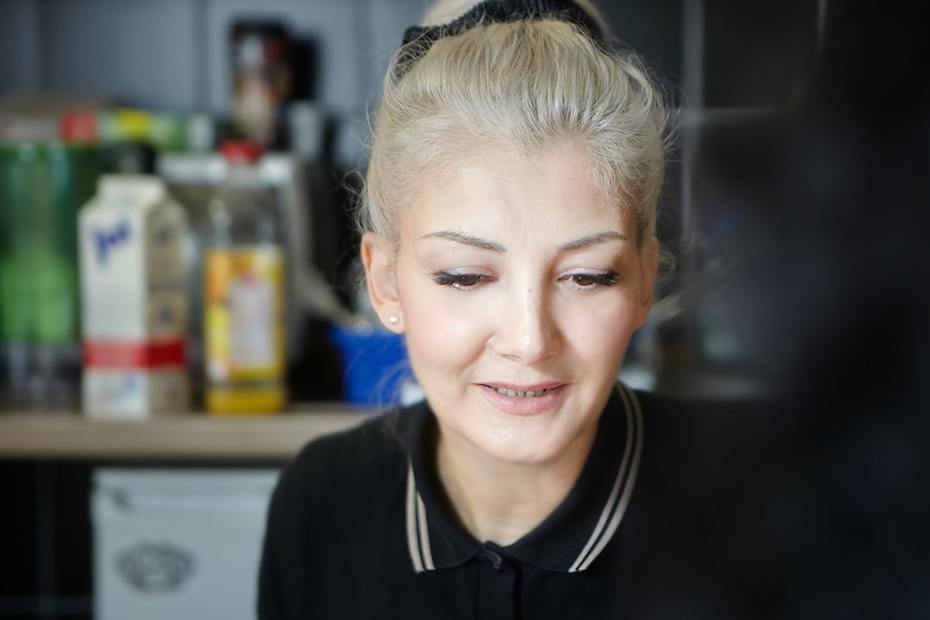
So how did you end up becoming a tattoo artist?
I’ve always drawn and sketched. It was actually a friend who gave me the idea. He saw my drawings and motivated me to get a foothold in this field of work. So, I went to a tattoo studio with my portfolio and luckily it worked on the first try. The studio owner thought my drawings were good and then he trained me. The first time I was supposed to tattoo someone myself I blacked out. It took me a half an hour to an hour just to put the needle in their skin. After the first two centimetres I put everything down again and hid myself in the cellar of the tattoo studio (laughs). My former boss took over the job. Drawing on people is something quite different. The skin works with you. You have a three-dimensional surface in front of you, a person. You have to more or less pause depending on the person. Everyone has their own experience of pain. But the most important thing is that you can’t erase your mistakes away like on a piece of paper. Every stitch must be correct. The other person has to walk around with it for the rest of their life. You have to be aware of that responsibility. Of course by now I’ve gotten over it. I’ve been tattooing now for almost seven years. You get more seasoned.
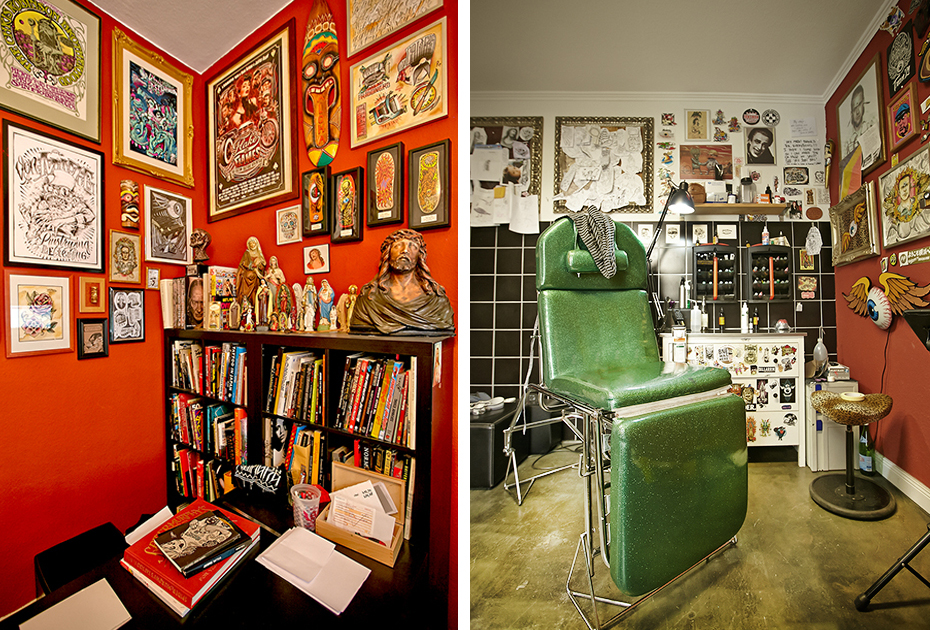
What do you think makes a good tattoo artist?
It’s bad when you only do it for money and don’t bring any patience or time with you. It’s also not good if you don’t have your own motifs and just copy everything.
Good tattooing is if you do with your heart and soul, if you take your time and find out what your customer wants to have, and if you get into the person. If you have your own motifs and show a feel for light and shadows. Yet, it’s more important that you have a conscience and don’t forget that you are giving this person something for their life. That’s why there are tattoos that I don’t do.
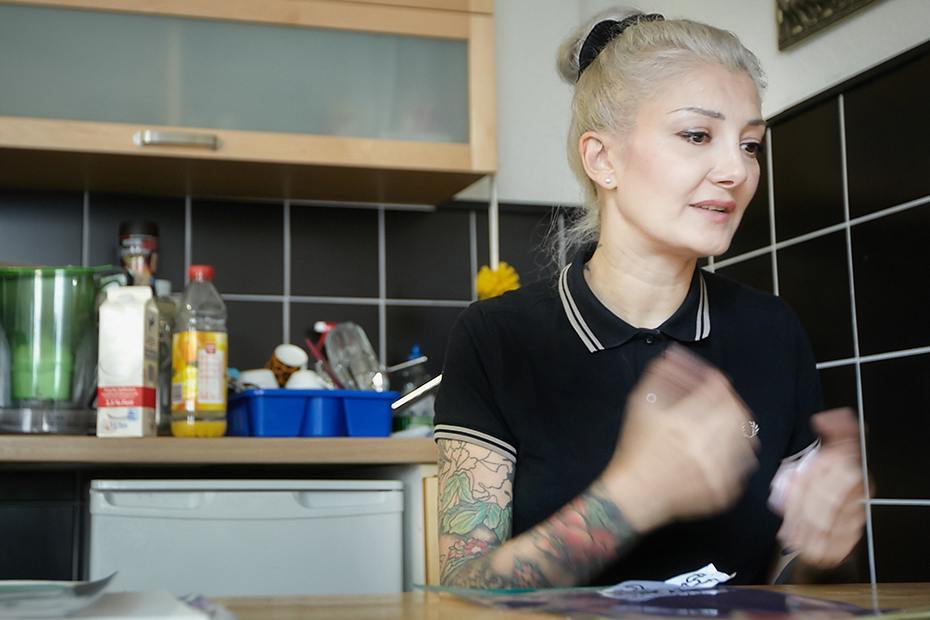
What would they be, for example?
I don’t tattoo anyone who asks me at the beginning if the laser treatment hurts. I want people to be aware that they have a tattoo for the rest of their life. I also don’t tattoo partner names on skin. For me that just seems like some sort of bad omen. One time I did do it, although I was sceptical about it. The woman had been married to her husband for twenty years and wanted to have his name in old German letters tattooed on her underarm. Three months later she was standing in the shop telling me, that her husband had left her for a younger woman. She wanted the tattoo changed. With a lot of tricks, »Ralf« became »Real Life«. Somehow it made sense then again. But since then I’ve distance myself from it and don’t tattoo any more partner names.
How can one recognise a good tattoo?
It’s a question of taste, of course. But for someone like me who prefers working with old school or neo-traditional styles, it’s those types of tattoos. You can recognise the motif from afar. That’s because of the way the job is done. You work with strong and thick lines and less with many small details and shadowing. These tattoos usually last longer. Skin lives and changes over the years, and tattoos change too. Because of the clear lines and structures, you rarely have this change or distortions with neo-traditional style.
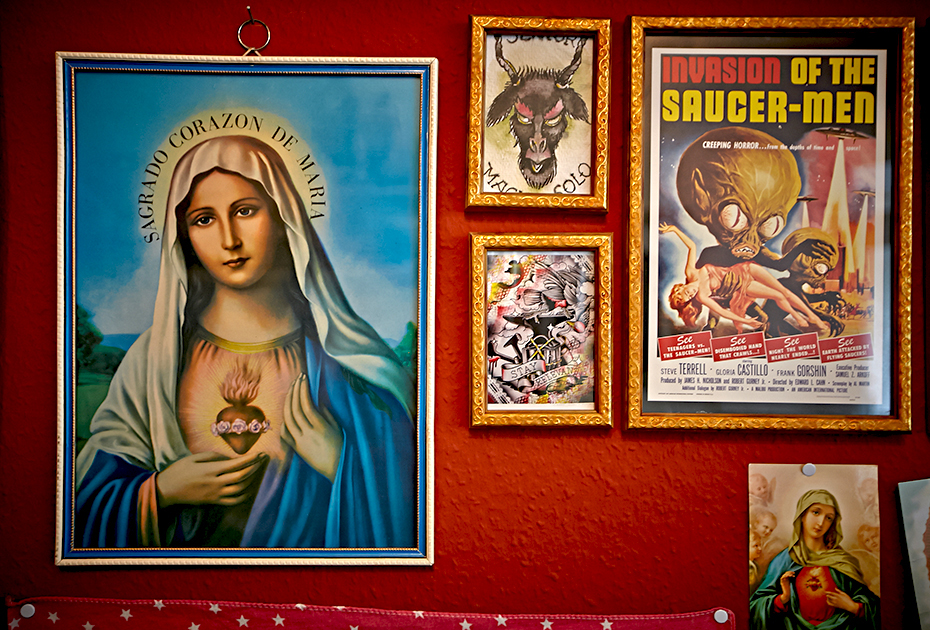
Does your German-Turkish background play a role as tattoo artist?
It doesn’t really interest me whether it plays a role or not. I want my work to play a role, not my background. It’s not important to me.
But there are actually people who find out about me because of it. I have a few Turkish women, regular customers of mine, who are around 50. They are six or seven women who come to me either all together or in small groups every three months and get a tattoo. That began after I tattooed a friend of theirs. After her friends saw it, they also came to me. But for a few exceptions, you wouldn’t be able to tell that they are tattooed if you saw them on the street.
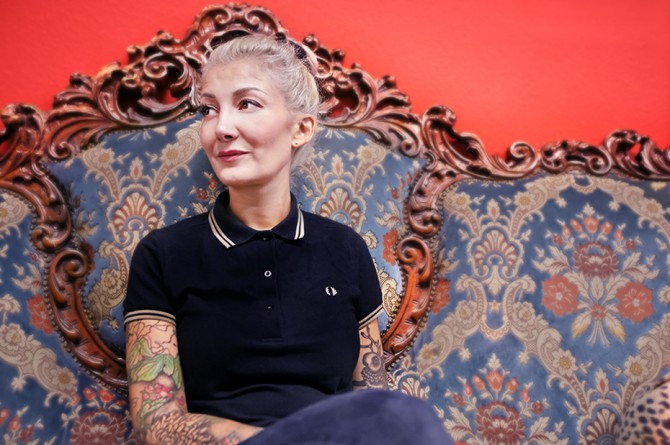
Credits
Interview: Ahu Gür



